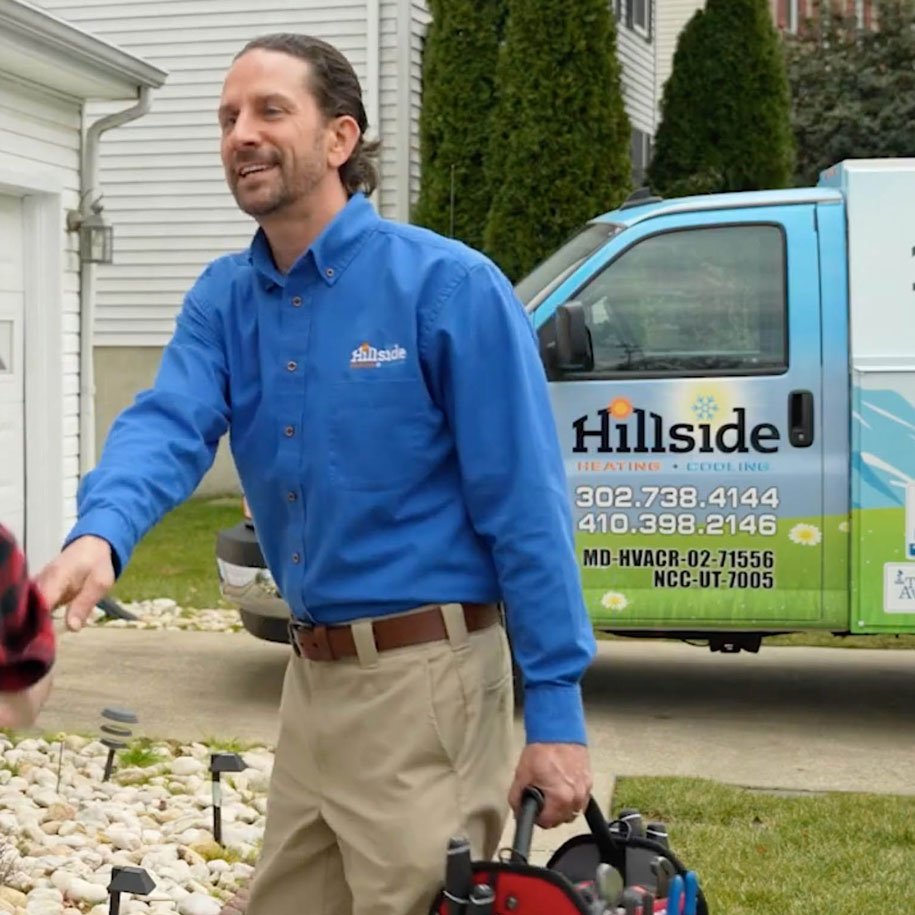
Home Comfort Upgrades Services in DE, PA, & MD
Keeping your paws comfy all year long often takes more than just heating and cooling products and services.
Smart Device Control. Hillside proudly sells and installs modern, remotely accessible Honeywell thermostats. Control your thermostat from anywhere using your smartphone or computer, allowing you to manage temperatures according to your schedule.
Tankless Water Heaters. A tankless water heater is an excellent alternative to the traditional “tank” water heater. They are affordable and flexible, accommodating many replacement situations. Install a tankless water heater today and never again worry about running out of hot water, water pressure, or planning when to shower in your home.
REQUEST FREE ESTIMATE
This contact form does not substitute for a service call request. Please call our office 302-738-4144 or 410-398-2146. Thank You.
SCHEDULE A FREE ESTIMATE TODAY!
Call Hillside Heating and Cooling to schedule a FREE estimate for a new smart thermostat or tankless water heater installation at 302-738-4144 or 410-398-2146.
Join Over 5000 Customers Who Trust Hillside For
- Modern Energy-Efficient Products
- Exceptional Customer Service
- Fast and Flexible Scheduling
- Up-Front and Fair Pricing
- Industry Leading Warranties
- Excellent Service and Maintenance Plans
- Courteous and Professional Technicians
- Over 70 Years of Industry Expertise
THE TRUSTED COMFORT EXPERTS OF DE, MD, & PA
WE LOVE OUR CUSTOMERS
All of our work is guided by three generations of family attitudes and values – respect, loyalty, integrity, accountability, honesty, kindness. We pride ourselves on building excellent relationships with our customers, some of whom we have served for decades, and then gone on to serve their children for decades. Above all, we know what it’s like to be a customer and how we’d like to be treated.
That’s why we’re so honored to have received thousands of glowing ratings, reviews, recommendations, and testimonials from our heating and cooling customers. It means the care we put into our work shows through, and that we truly are doing customer service right.

Proudly Serving New Castle County, DE, Cecil County, MD and Southern Chester County, PA.

